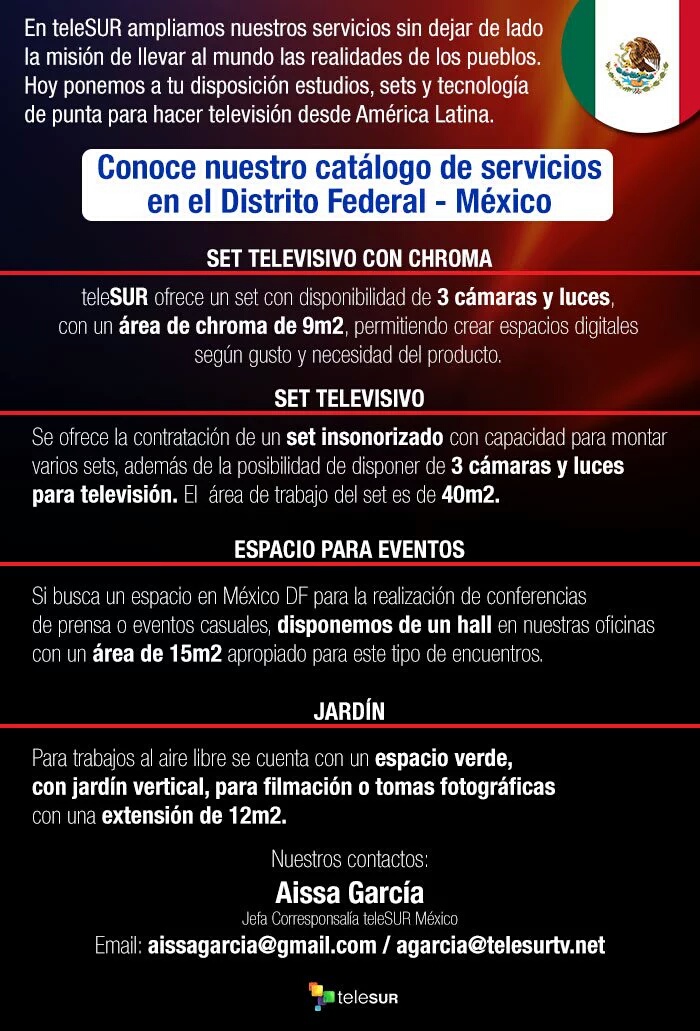Don't cry for me, Telesur
In a move that Maduro considers an affront to freedom of speech, Mauricio Macri drops Telesur from Argentina's domestic programming grid and spends public money on more worthwhile endeavors.


Since taking office last December, Argentinean President Mauricio Macri has made a clean break with the policies of his predecessors at the Casa Rosada: the late Nestor Kirchner and her widow, Cristina Fernandez de Kirchner. His reforms run the gamut across economic policy, foreign policy, and, especially, the media. That’s why the recent decision that Argentina would no longer finance Telesur, the “news channel” created a decade ago by the late Hugo Chávez, is hardly surprising.
According to the head of Argentina’s public media system Hernán Lombardi, the decision came after weeks of legal analysis and includes not only walking away from the broadcast network, but also lifting a mandatory order of inserting the channel in all cable and satellite TV carriers (weeks before this announcement, main cable provider Cablevisión dropped Telesur from its programming grid). Lombardi considers that the country’s current involvement in the channel was quite minimal in both financial and editorial matters anyways.
But Telesur begs to differ. The channel and its main backer, the Venezuelan government, sees this as an attack on free speech. Nicolas Maduro himself accused Macri of “trying to disappear the channel for Argentineans”. Telesur has denied Lombardi’s claims and says it was left in the dark over the issue.
The decision of leaving Telesur comes in the wake of recent changes in the Argentinean media landscape: the entire public media system has been reorganized and the local broadcasting authority (similar to our CONATEL) was intervened back in December. The main TV channel (TV Publica) dropped “6,7,8” (Buenos Aires’ version of La Hojilla) and the State stopped funding the controversial “Futbol para Todos”, in which the government owned all broadcasting rights of domestic football.
During the 12-year period of Kirchnerista tenure, there was a clear intent to install a “communicational hegemony” model in Argentina, similar to the one the Comandante Eterno imposed here in Venezuela: Public media outlets got much more money and new equipment, state advertising and mandatory broadcasts (cadenas) were used for open political purposes and pressure against private outlets increased, leading to the passing of the highly polarizing Media Law in 2009. But all of that came to an abrupt end with Mauricio Macri’s run-off victory in late 2015.
What does this mean for Telesur? It’s sort of a breaking point. As fellow CC blogger Juan C. Nagel has reported, the situation inside the channel in recent times hasn’t been good. The drop on oil prices and the economic crisis in Venezuela has taken its toll and previous plans to expand into English seem on permanent hold. At least, Telesur has recently found a friend in another propaganda-driven news channel: Russia Today. But with RT rapidly expanding its Latin American operations, it has also become a competitor.
Now Telesur faces another challenge thanks to the recent political developments in the region: From the end of the Kirchner era to Evo Morales’ recent re-election setback to the unrest in both Brazil and Venezuela. And the icing on the cake has been Barack Obama’s historical visit to Havana. But the channel is yet unwilling to drop the ideological bias of its editorial line, making it unappealing to casual viewers and hurting its long-term prospects. No wonder it has been forced to do some “tiger-killing”:

Caracas Chronicles is 100% reader-supported.
We’ve been able to hang on for 22 years in one of the craziest media landscapes in the world. We’ve seen different media outlets in Venezuela (and abroad) closing shop, something we’re looking to avoid at all costs. Your collaboration goes a long way in helping us weather the storm.
Donate




